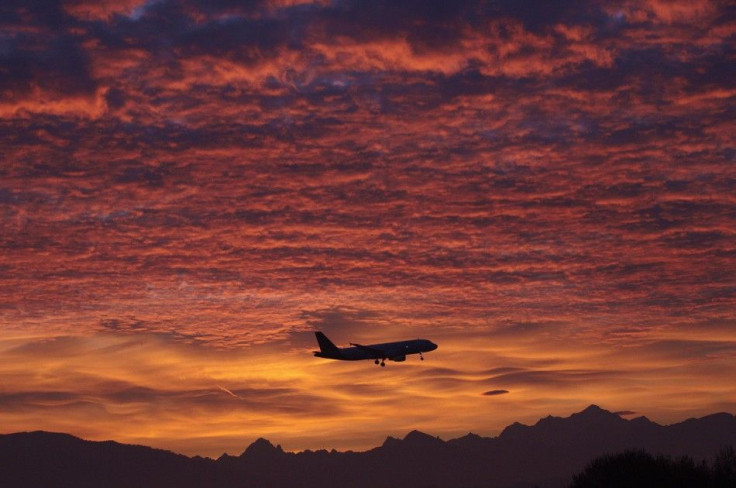Airlines Brace for Heavy Impact of Europe Crisis

(Reuters) - Airlines worldwide face over $8 billion in losses next year if Europe's politicians fail to get to grips with the region's debt crisis, the industry's leading trade group warned on Wednesday.
A collapse of efforts to shore up the euro and prevent a new shock to the global banking system would hit air transport across the globe and cripple the Asian profit machine which has led the industry's recovery since 2009, Geneva-based IATA said.
The biggest risk facing airline profitability over the next year is the economic turmoil that would result from a failure of governments to resolve the eurozone sovereign debt crisis, said Tony Tyler, Director General of the International Air Transport Association.
Such an outcome could lead to losses of over $8 billion, the largest since the 2008 financial crisis, he added.
Even in the best-case scenario, Europe's airlines face losses in 2012 and the gap between the industry's haves and have-nots is expected to widen as Asian carriers soak up new demand and North American airlines gain by selling fewer seats.
IATA, which represents 240 of the best-known airlines carrying 84 percent of global traffic, cut its central forecast for 2012 industry profits to $3.5 billion from $4.9 billion.
Its 2011 profit outlook was unchanged at $6.9 billion.
Until now, aviation has been relatively optimistic about its prospects as Europe teeters on the edge of recession, with rising demand in Asia and capacity restraint in North America seen boosting profits and driving talk of a two-speed market.
Few industry leaders have been willing to contemplate a meltdown, with Airbus and Boeing cranking up production to record levels to meet demand for fuel-efficient jets given the continued strength of oil prices.
But IATA said it could not ignore growing economic risks.
There remains a very significant risk that the sovereign debt crisis in the eurozone could spiral out of control, generating a banking crisis and more widespread economic weakness, it said in a new market forecast issued on Wednesday.
IATA's worst-case scenario draws on a risk assessment on the European debt crisis carried out by the Organization for Economic Co-operation and Development.
The exercise takes account of the possibility of a full-blown banking crisis marked by deep European recession, with the fall-out felt globally. IATA adopted the OECD's downside forecast that the global economy would grow by 0.8 percent next year.
In this scenario, airlines would see growth in passenger demand grind to a halt and a 4.7 percent contraction in cargo markets, IATA said. Asian carriers would sink from a $3.3 billion profit in 2011 to a $1.1 billion loss.
TRADE SLOWDOWN
Freight markets are already falling in a sign of declining business confidence and weakening global trade, though the passenger business of many airlines is performing better than expected. Freight traffic shrank 5 percent between May and October.
International trade has pretty much ground to a halt and we are likely to see a slowdown in business and personal travel as a result, said IATA Chief Economist Brian Pearce.
The signs available to airlines, whose networks capture day-to-day signals about the economy and broadly track business and consumer confidence, already suggest Europe is unlikely to muddle through its debt problems without some type of recession.
Even if government intervention averts a banking crisis it is unlikely that Europe will avoid a brief recession. Business and consumer confidence has already fallen too far, IATA said.
Tyler, who until recently headed Hong Kong-based airline Cathay Pacific, also expressed concerns about the availability of financing needed to help Airbus and Boeing maintain their high levels of production.
I think there is more than a possibility that financing will be much more difficult next year than it has been hitherto and certainly more expensive, he told reporters.
From my conversations with lessors, there is no doubt that it is tightening up and that is more likely to be the constraint in the immediate short-term, he said at IATA's annual briefing.
His comments appeared less positive than a forecast on Tuesday from leading manufacturer Boeing and recent bullish statements from European planemaker Airbus.
Boeing said it expected a 23 percent rise in global aircraft deliveries by value to $95 billion in 2012 and said capital markets would help fill a gap left by nervous European banks.
IATA groups most of the world's flag carriers and network airlines such as United Airlines, Lufthansa and Singapore Airlines. Its membership excludes most low-cost carriers which have generated much of the industry's traffic growth, but its market forecasts do include them.
Shares in Lufthansa and the parent of British Airways fell around one percent on Wednesday.
Under the central forecast of $3.5 billion global airline profits, regional differences are expected to widen in 2012 as European carriers slip into a combined loss of $0.6 billion and Asian airlines pull in profits of $2.1 billion helped by China.
North American carriers are looking at combined 2012 profits of $1.7 billion due to recent cost cuts and capacity restraint but IATA says the recent bankruptcy filing of American Airlines is a reminder of the chill spreading through the sector.
(Editing by Helen Massy-Beresford)
© Copyright Thomson Reuters 2024. All rights reserved.






















